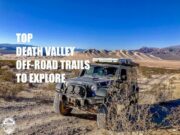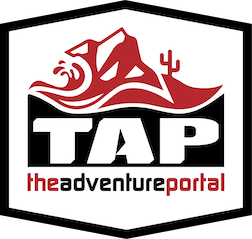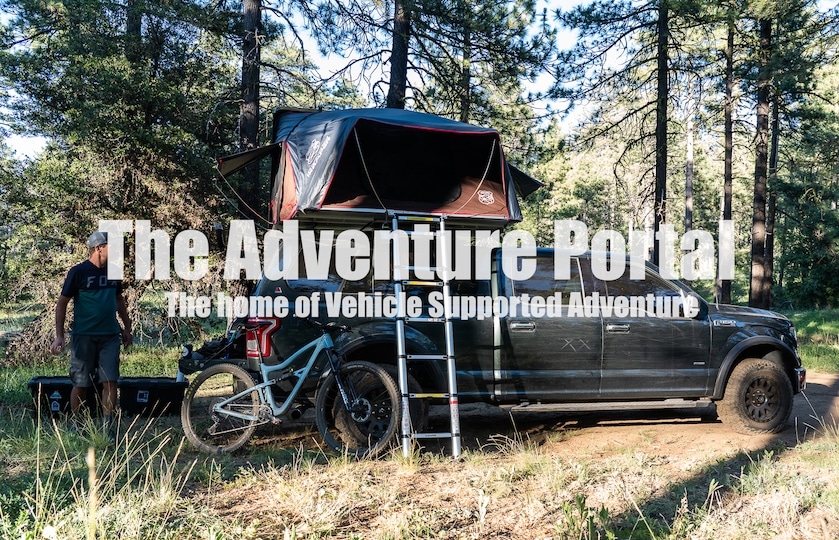Overland trailers have become increasingly popular among overland adventurers and there’s a multitude of brands on the market offering amazing products. These rugged trailers offer valuable storage, added comfort, and greater freedom to explore remote destinations. However, like any piece of gear, towing a trailer comes with its own set of benefits and challenges. Whether an off-road or overlanding trailer is the right choice for you depends on your travel goals, vehicle compatibility, and personal preferences. Here at TAP we’ve used many different styles over the years and yes, there’s certainly pros and cons.
In this article, we’ll explore these pros and cons and hopefully help you determine if it’s a worthwhile investment for your next off-road adventure.

Pros of Overlanding with an Off-Road or Overland Trailer
- Increased Storage Capacity
- Benefit: Overland trailers provide significant storage space for gear, food, water, and camping supplies. Whether you’re planning a weekend trip or an extended overlanding expedition, having extra space ensures that you can carry everything you need without overcrowding your vehicle.
- Enhanced Comfort
- Benefit: Many off-road and overland trailers come with built-in sleeping arrangements like rooftop tents, fold-out beds, or awnings. This feature can make your camping experience much more comfortable, especially in harsh weather conditions. No need to set up camp every night—just pull over and enjoy your setup.
- Freedom to stage camp and leave
- Benefit: Staging the trailer at camp allows you to leave for the day to tackle a rugged trial or perhaps fish, hike, and climb.
- Better Organization
- Benefit: With dedicated compartments, storage racks, and tie-downs, overland trailers offer superior organization compared to simply cramming gear into your vehicle. This organization can save time and stress during your trip, making it easier to access essentials.
- Weight Distribution
- Benefit: In the USA tow rates are often significantly greater than payload rates, allowing the owner to distribute a lot of weight away from the rig itself.

Cons of Overlanding with an Off-Road or Overland Trailer
- Added Weight and Reduced Fuel Efficiency
- Drawback: Towing an off-road trailer adds extra weight to your set up, which can impact fuel efficiency and overall performance. This can be particularly noticeable when driving on steep inclines or long stretches of road. Overlanding with a trailer on a regular basis may also require more frequent vehicle maintenance.
- Increased Setup Time
- Drawback: While many off-road trailers are designed for convenience, setting up and breaking down camp with a trailer can still take longer than simply setting up a tent. Additionally, parking and maneuvering with a trailer in tight spaces can definitely be more challenging and stressful.
- Cost
- Drawback: Off-road and overland trailers can be expensive. Prices vary based on features, size, and durability, but in general, a quality off-road trailer will set you back thousands, if not tens of thousands of dollars. Additionally, you’ll need to factor in maintenance costs and potential repairs for the trailer over time.
- Increased Maintenance
- Drawback: Like any off-road equipment, trailers require regular maintenance. Suspension systems, tires, brakes, and electrical components are all subject to wear and tear, especially after rugged use. If you’re new to trailer maintenance, it might take some time to learn how to properly care for your trailer.
- Limited Maneuverability
- Drawback: One of the biggest challenges of towing an off-road trailer is maneuverability. While off-road trailers are designed to handle tough terrain, navigating tight turns, narrow trails, and steep climbs can become more difficult, especially in areas with limited space.
- Not Ideal for All Terrains
- Drawback: While off-road trailers are rugged, they’re not invincible. Some extremely rough terrains, such as deep sand dunes, rock gardens, or deep mud, can still present a challenge for trailers, especially if they’re not specifically designed for those conditions.

Final Thoughts: Is Overlanding with an Off-Road Trailer Right for You?
Choosing to overland with an off-road or overland trailer ultimately depends on your personal preferences and the type of adventure you’re seeking. Bottom line, remember there’s no perfect rig and every set up will create compromises. If you value extra storage and comfort, a trailer could be a game-changer for your overland journeys. However, if you have a more minimalist approach, the added weight, cost and the increased difficulty of towing in rugged terrain, might not be ideal for you.
Check out the Ultimate Guide to Overland and Off-Road Trailers HERE

















Well put, but I would disagree about set up time. We tent camped for 40 years and were pretty well organized. Still a lot gear goes along with tent camping. This gear has to be drug out of camp boxes… Where as our trailer is completely set up when we pull over. The bed is made, the kitchen is ready, water, power… I’ve set up tents during windy rainy and snowy nights. It a chore and takes much more time than opening the door of our trailer.
I think the rest of this artical is pretty spot-on. What I miss most about tent camping is the freedom of setting up in tucked away places like in a small meadow or next to a stream. But we clearly understand the benefits of our off road trailer, especially now that we are retired and camp much more often, for long durations, and year round.
As for the difficulties of towing, it’s an art. I kind of enjoy the element of challenge. Our trailer can follow us darn near anywhere.